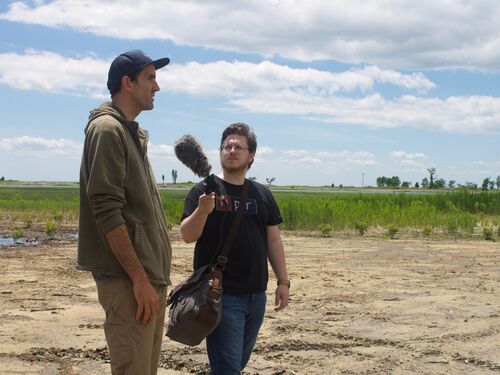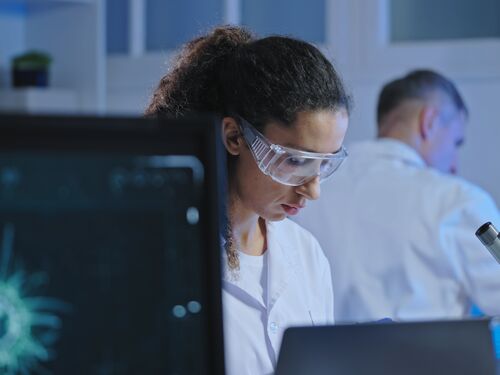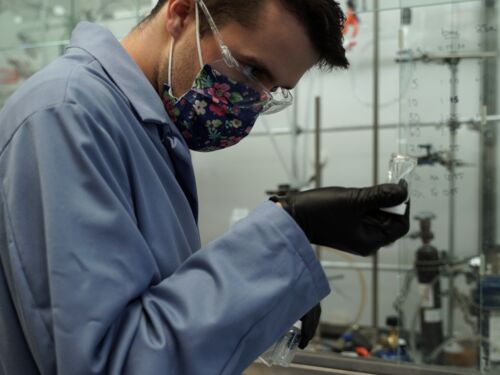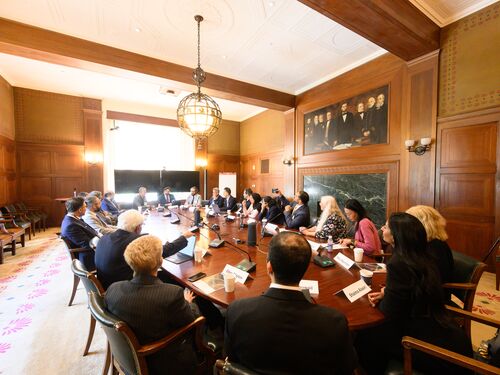Experts Explore Challenges of Testing Treatments for COVID-19
Feature Story
By Stephanie Miceli
Last update April 15, 2020
Researchers are scrambling to find effective treatments for COVID-19, which has infected more than 1 million people around the world. Experts discussed the scientific, logistical, and ethical challenges of developing, testing, and deploying potential therapies in the midst of an ongoing pandemic during an April 9 webinar, held by the National Academy of Medicine (NAM) and the American Public Health Association. Moderated by Margaret Hamburg, NAM foreign secretary and a former FDA commissioner, the webinar on COVID-19 spread and treatment was the third in the ongoing series of “COVID-19 Conversations.”
Panelists also reviewed the developing knowledge about possible ways the virus is spread, including through aerosol transmission and environmental contamination.
The fourth webinar will discuss crisis standards of care during the COVID-19 pandemic, and will be held on Wednesday, April 15 at 5 p.m. ET.
Here are some highlights from the webinar:
“Is there sufficient infectious virus in very small particles to infect someone? Or is it repeat exposure to multiple particles of a small size that’s going to bear the risk? Those are complex studies that are difficult to carry out in this environment. But I think we’ll see much more evidence coming forward in the future.” John-Martin Lowe, assistant vice chancellor for inter-professional health security training and education, College of Public Health, University of Nebraska Medical Center
“Many countries, including France, Italy, Spain, and Argentina, are treating patients with convalescent plasma [which involves collecting blood plasma from a patient who has recovered from COVID-19 and transfusing it into a sick patient to stimulate immune response]. The hope is that they all share their experience with others. Today, the major problem is the logistics of implementing this on a large scale. We have great facilities in place for blood drives and other blood products. But with convalescent plasma, we need to get a particular population, which is people who have recovered from the virus.” Arturo Casadevall, distinguished professor and chair, microbiology and immunology, Johns Hopkins Bloomberg School of Public Health
“There’s a core dilemma in the U.S. Some people view research as being made into a guinea pig, whereas others see it as an opportunity to get the newest or best thing out there. It’s also important to manage public expectations when we start talking about possible treatments, to make sure that the public understands which things are really under investigation and which things are probably fraudulent.” Alta Charo, Warren P. Knowles Professor of Law and Bioethics, University of Wisconsin-Madison
Listen to the full webinar and read the transcript here.
More like this
Discover
Events
Right Now & Next Up
Stay in the loop with can’t-miss sessions, live events, and activities happening over the next two days.
NAS Building Guided Tours Available!
Participate in a one-hour guided tour of the historic National Academy of Sciences building, highlighting its distinctive architecture, renowned artwork, and the intersection of art, science, and culture.



